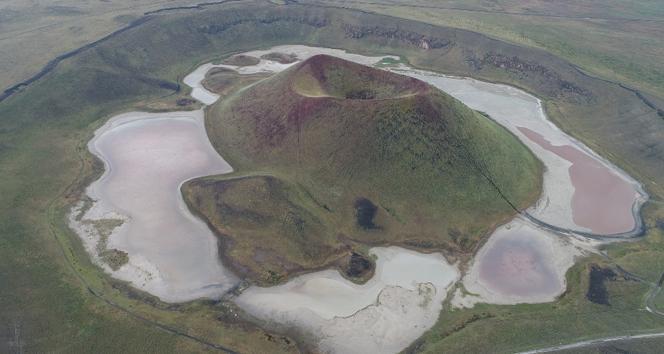
Meke Lake in the Central Anatolian province of Konya, known as the “world’s largest evil eye amulet,” is almost on the brink of extinction, experts have warned. The unique crater lake with a giant volcanic cone in its middle, has almost completely dried up because of the ongoing drought due to global warming as well as incorrect irrigation techniques, according to experts.
“Meke Lake, one of the unique geological formations of the world, has dried up due to global warming and drought, continuing for years, as well as senseless irrigation policies and underground water abstraction,” Güler Göçmez, an academic of Konya Technical University was quoted as saying by local media on Nov. 3.
The lake has also turned into a “garbage dump area” due to people leaving the area polluted with their leftover garbage, Göçmez said, adding that the place should be temporarily closed to visitors.
“Many people come to the area to picnic or drink alcohol, but there is no longer any nature left to see there. The most immediate precaution to be taken for Meke Lake is that it should be put under protection,” she reportedly said.
“There is no longer natural beauty there. This year, migrant birds have not come either,” Göçmez said.
Unless the lake area was cleaned up, even if rains resumed in the area, “it would be difficult for the lake to return to its previous situation,” the academic said.
Göçmez suggested a water transfer from the nearby lake of Acıgöl could be transferred to stop the Meke Lake turning into a complete arid land.
“If water was to be transferred from there [Acıgöl], then maybe it [Meke Lake] could resume its previous situation. But still, in terms of pollution, this place needs to be put under protection and closed to visitation,” she said.
Lake Meke was declared a first grade protected area in 1989. It was registered as a natural monument in 1998. On June 21, 2005, the lake and its surrounding area was declared a Ramsar site because of its international importance for wildfowl.
A Ramsar site is a wetland site designated to be of international importance under the Ramsar Convention signed in 1971.